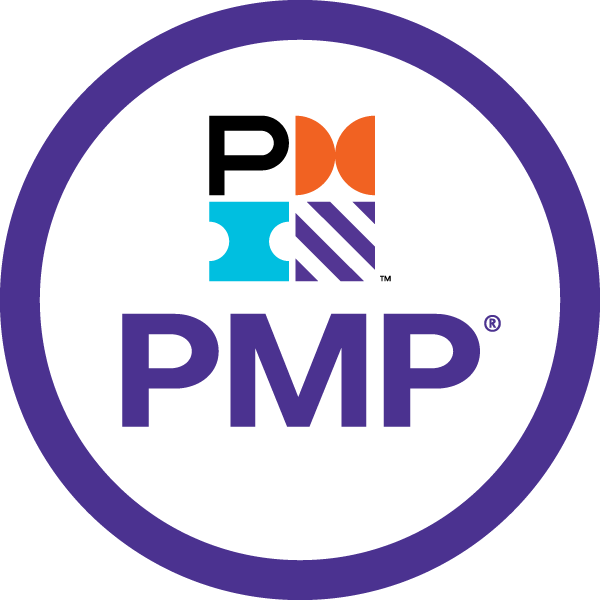PMI Project Management Professional (PMP®)
October 2, 2022
About the PMP
The PMI's Project Management Professional (PMP) certification is one of the most sought after project management certification, and in my experience one of the most difficult to obtain. If you are interested in your PMP certification, I suggest planning early. If you are an entry level project manager, start tracking your hours now! By organizing my project management hours by process area on a spreadsheet, the application process was much easier. The application alone can be very time consuming to complete, but the meticulous eligibility process is part of what makes the PMP so valuable.
**The PMP exam undergoes constant review and the content changes on occasion. My experiences are from taking the exam in February 2018. Some content may have changed since that time – always refer to the PMI website.
Pros
- Commonly requested on Job listings
- Can qualify you for a higher salary
- Widely recognized
- Prestigious
- It demonstrates you have a common understanding of Project Management best practices and terminology
Cons
- Many of the methodologies taught in the PMP are not particularly applicable to technical project management (although Agile is now represented on the exam!)
- Expensive ($405 for PMI members and $555 for non-members as of October 2022). Add additional cost for any prep training you might want
- Rigorous eligibility criteria (not ideal entry level project managers)
Eligibility Criteria
- 4 year degree
- 36 months leading projects
- 35 hours of project management education/training or CAPM® Certification
OR
- A high school diploma or an associate’s degree (or global equivalent)
- 60 months leading projects
- 35 hours of project management education/training or CAPM® Certification
Resources I Used
- Study Guide: CAPM/PMP Project Management Certification All-In-One Exam Guide, Fourth Edition by Josh Phillips
- Udemy Course: https://www.amazon.com/Project-Management-Certification-Guide-Fourth/dp/1259861627
- ITTO (inputs, tools, and techniques, & outputs): ITTO Chart
- Practice Exams: Take as many as you can find! I used several different sources for PMP prep

Once you have worked so hard to earn your PMP exam, do not let it lapse! You worked too hard and paid too much for this. As a PMP myself, when I have reviewed resumes and interviewed Project Managers at a past job, I always cross checked the PMP registry if they claimed to have their PMP. So many applicants did not actually have the PMP and I was disappointed in their dishonesty. If you have let your PMP lapse, simply list it on your resume as lapsed with the date you obtained it. If you don’t have your PMP yet, even if you have taken a PMP course, don’t list it on your resume. It might be cross checked!
If you get married or change your name for any other reason, make sure to update your name with PMI so that future employers can still find you if they want to check you in the registry.
In order to maintain your PMP, you must complete 60 PDUs every 3 years and pay a fee to renew your certification. It’s pretty easy to get the PDU credits – I watch webinars on projectmanagement.com, which syncs your PDU credits to your PMI account. There are plenty of free webinars and a wide variety of topics.
If you understand basic project management concepts already (have worked in the field, and/or have taken classes in the past), don’t feel like you have to pay $1,000+ for a PMP prep class. If an in person class works better for your learning style, go for it! I found that a $20 udemy class was perfectly fine to prepare for the exam.